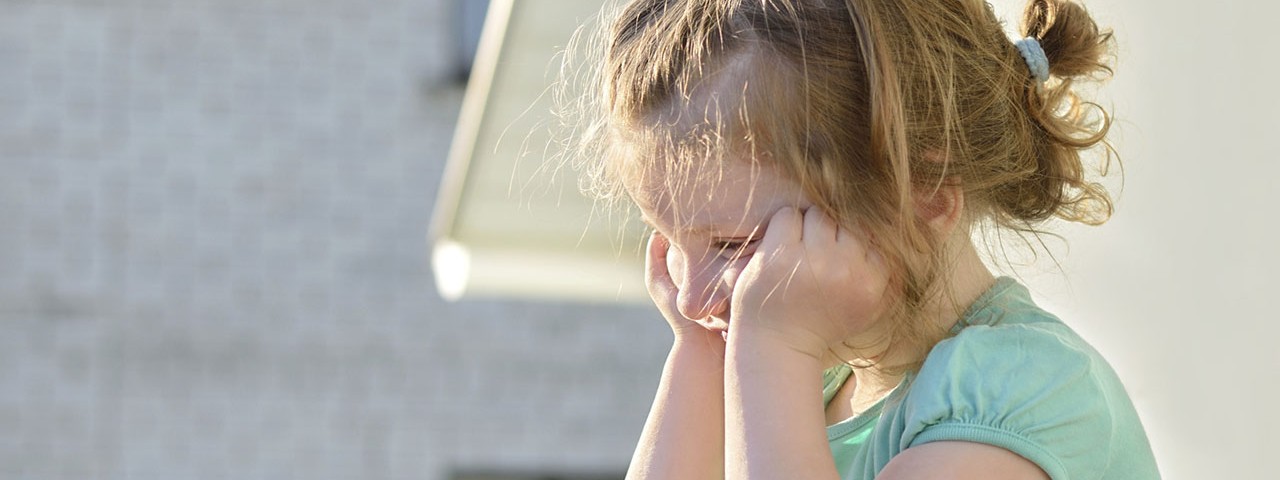Domestic Violence: An Unwanted Family Legacy
- Tweet

When children grow up witnessing domestic violence, they carry a lifelong burden. This early trauma may impact their development, emotional regulation, and mental health. But one of the saddest outcomes is that children who witness domestic violence grow up to have a greater risk of living in violent relationships themselves, whether as victims or as perpetrators. Without more awareness of this problem and help for these families, the burden of domestic violence will continue to be passed from one generation to the next.
Domestic violence is a daunting problem, but we must acknowledge and address it! Tweet this!In the U.S., it is estimated that more than 15 million children are exposed to domestic violence each year, and researchers believe that witnessing domestic violence may be just as harmful to children as being victims of abuse themselves. Studies consistently show that kids exposed to domestic violence are more likely to be in abusive relationships, even as early as adolescence. Likewise, their own children end up in the same setting of abuse and violence.
Early exposure to violence creates the highest risk.
The children who are most at risk for carrying domestic violence into the next generation are those that are affected by it during the first years of life. In one study, researchers from the University of Minnesota tracked 168 children born to mothers identified as high-risk for domestic violence. The study began during the mothers' pregnancies and followed their children through their mid-20's. It turned out that exposure to domestic violence in the first five years of life directly predicted involvement in a violent relationship at age 23, either as a victim or a perpetrator. In contrast, children who were only exposed to domestic violence in middle childhood (ages 6-8) appeared to be more resilient and were not at greater risk for violence in young adulthood.
Why is it that early exposure to domestic violence has such a salient effect? In infancy, a critical part of development is the formation of the first attachment relationships — the bonds between a baby and her caregivers. A baby needs to feel safe and secure and to know that her needs will be responded to in a consistent manner. Violence in the home can undermine this basic sense of security, and when a mother is a victim of domestic violence, she may be unable to respond to her baby with consistency and connection.
During those first few years of life, children are also developing an internal framework for navigating social relationships and learning to understand and control their behaviors and emotions. When they see violence used as a way of coping with conflict in a relationship, they may learn to see this as normal. And when exposure to domestic violence happens earlier in life, children have had less time to build positive expectations about relationships that might help them see violence as unusual or unhealthy.
These cycles of violence are sobering, and to the children who bear witness to them, they're downright tragic. What can we do to break these cycles, so that all children have a chance to grow up to have healthy relationships and to provide secure environments for their own families?
Effective prevention and intervention can reduce the effects of domestic violence on children.
Ideally, we should work to prevent domestic violence in the first place, which benefits both the parents and their children. Effective prevention programs can start in schools, providing education to kids about healthy relationships and conflict resolution. Programs can also target at-risk couples and parents, giving them training in conflict management and connecting them with services to alleviate other sources of family stress, which can increase risk for domestic violence.
There's also plenty of hope for children that have already been exposed to domestic violence. Research shows that some children do survive early exposure to domestic violence without adverse outcomes later in life, and these kids and their families offer clues to breaking these intergenerational patterns. Many of these kids have benefited from warm and supportive parenting, which seems to make them more resilient and can override the effects of early trauma. Parents living in abusive relationships should be supported in creating a safer home life for their children, and they can also be counseled about how positive parenting can heal the hurt that their children have experienced.
Domestic violence is a daunting problem, but it is critical that we acknowledge and address it — not only for the sake of children currently affected by domestic violence, but also for generations of families to come.

